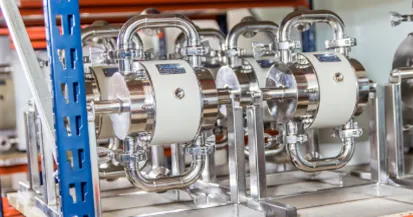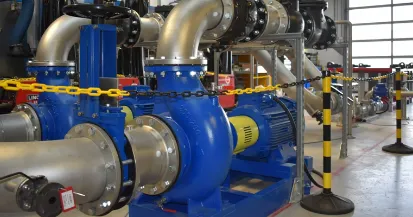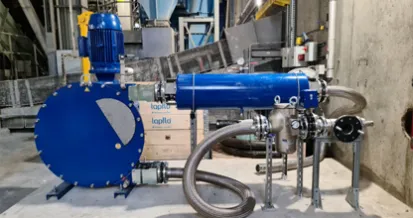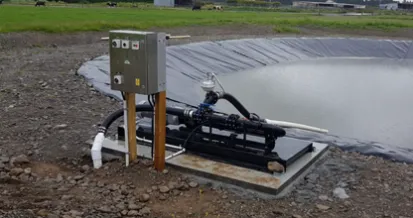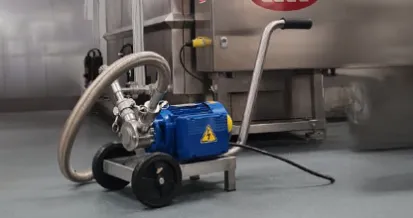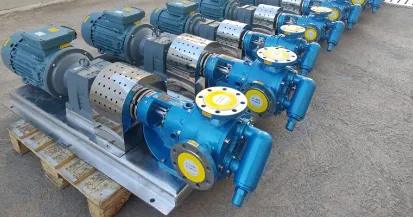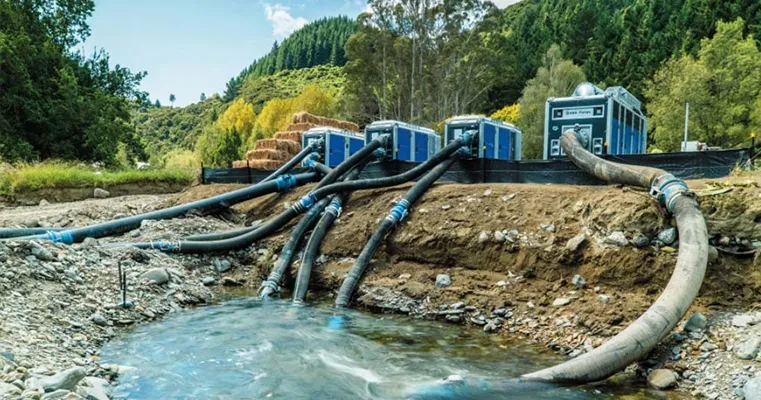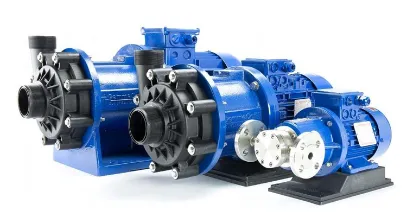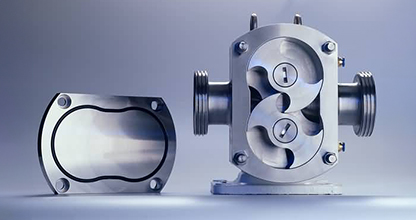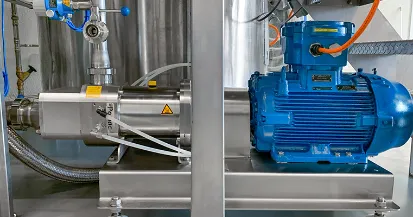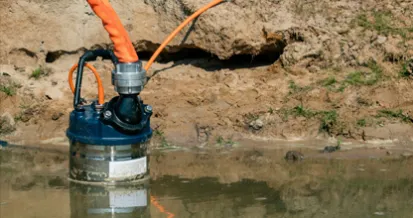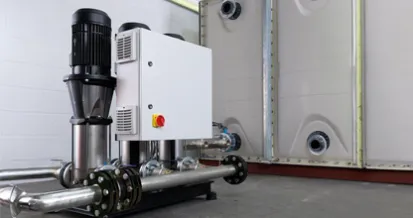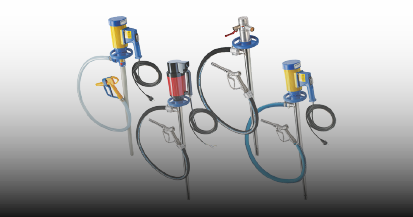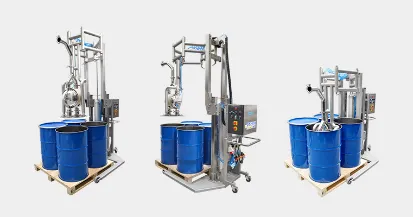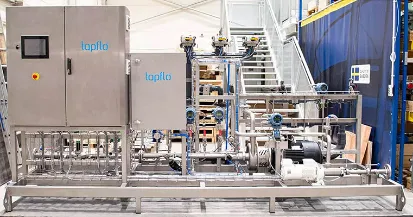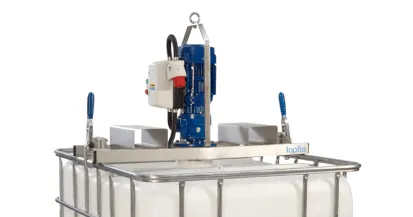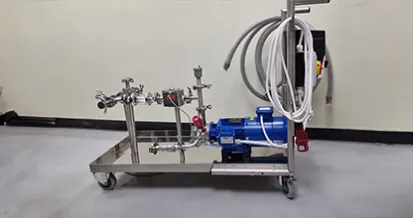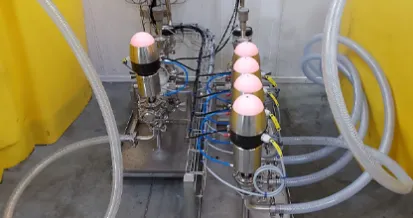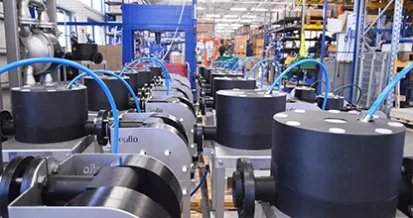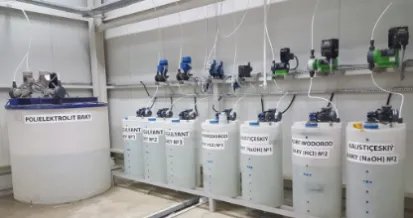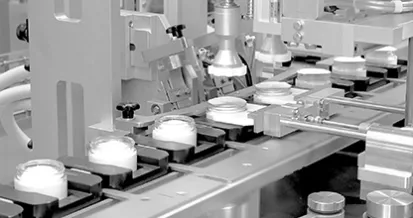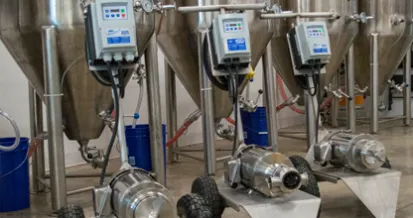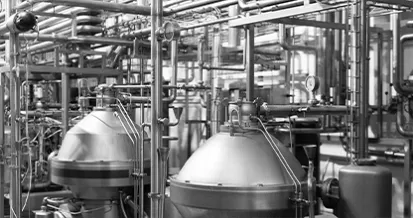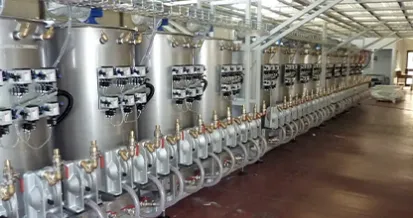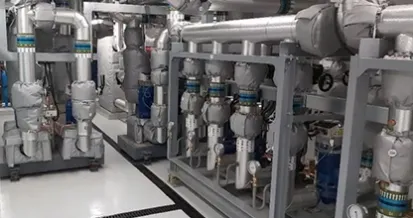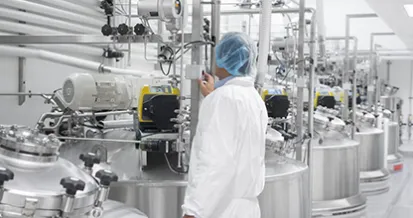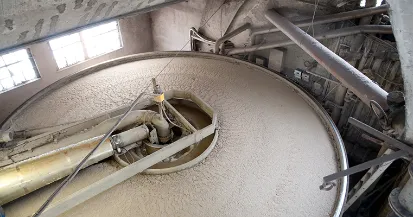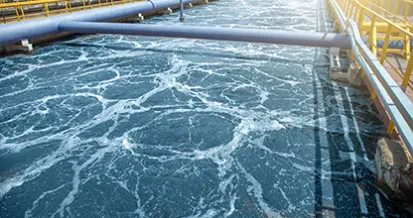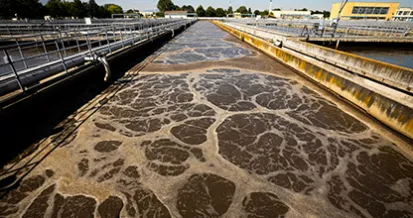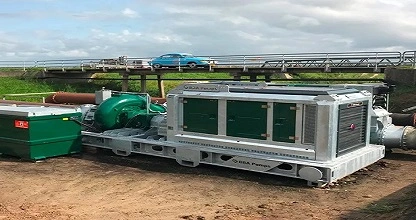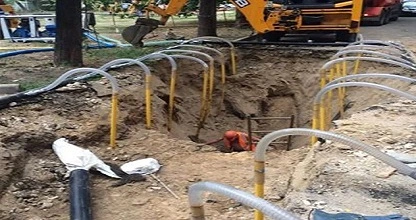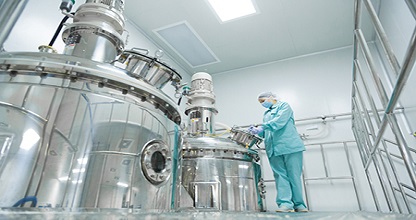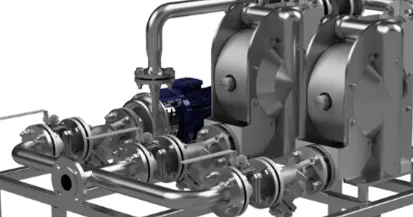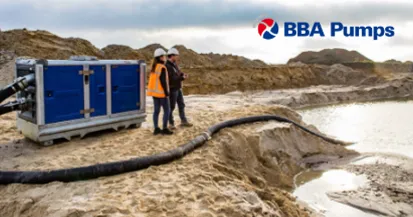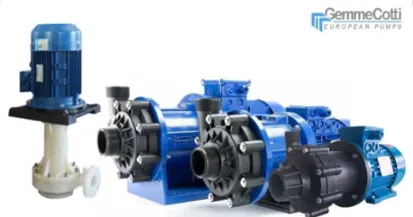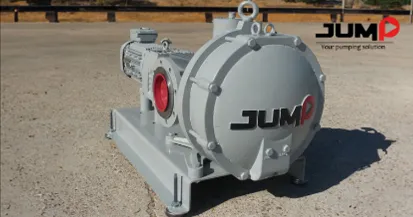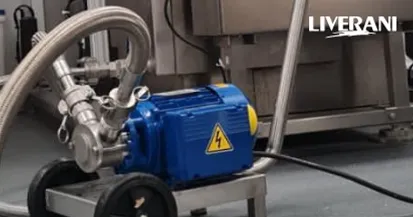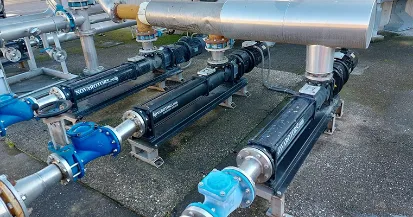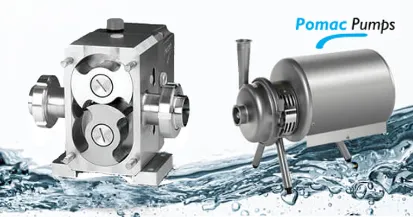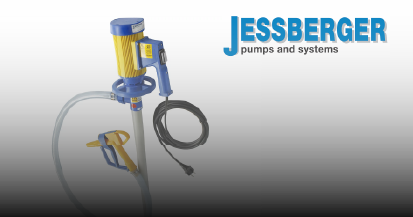As industries face increasing pressure to decarbonise and adopt cleaner energy solutions, technologies like Carbon Capture & Storage (CCS), green hydrogen, and renewable energy play a crucial role in reducing emissions. The CCS industry, in particular, aims to capture carbon dioxide (CO₂) emissions from large-scale industrial processes, preventing them from entering the atmosphere, while green hydrogen production offers a zero-emissions fuel source. Renewable energy, such as wind and solar power, further accelerates the shift to a sustainable energy future.
However, these advanced systems rely on specialised equipment to operate efficiently. Pumps are essential components in these applications, managing the transportation, compression, and circulation of various gases, liquids, and chemicals required for energy generation, storage, and emission reduction.
Key Applications in CSS, Green Hydrogen & Renewable Energy
Before looking at the specific pump technologies involved, it’s important to understand the key applications within the CCS and clean energy sectors. These applications present unique challenges, from managing high pressures and temperatures to handling corrosive and abrasive materials. Let’s take a look at some of the major areas where pump technologies are required:
- Carbon Capture & Storage (CCS):
CCS involves capturing CO₂ emissions from industrial processes and either using or storing them underground to prevent release into the atmosphere. The key applications in this industry include:
- CO₂ Capture: Industrial facilities capture CO₂ emissions at the source, often using chemical absorption processes
- CO₂ Compression & Transport: After capture, CO₂ is compressed to high pressures and transported via pipelines or ships to storage sites
- CO₂ Injection & Storage: The compressed CO₂ is injected into deep underground formations, such as depleted oil and gas fields or saline aquifers
- Green Hydrogen Production & Distribution:
Green hydrogen is produced through water electrolysis using renewable electricity. It serves as a versatile, zero-emissions energy carrier for various applications:
- Water Electrolysis: Hydrogen is generated from water through electrolysis, requiring pumps to circulate water and handle byproducts
- Hydrogen Compression & Storage: Hydrogen must be compressed and stored at high pressures, or in cryogenic liquid form, for later use in fuel cells or transportation
- Fuel Cell Applications: Hydrogen fuel cells convert hydrogen into electricity, with pumps ensuring the proper circulation of gases and cooling fluids
- Renewable Energy Generation & Storage:
The renewable energy industry, particularly wind and solar power, requires efficient pumps to manage cooling, hydraulics, and energy storage systems:
- Offshore Wind Power: Wind turbines use hydraulic systems for pitch control and cooling, as well as pumps for handling seawater intake
- Battery Energy Storage Systems (BESS): Large-scale battery energy storage systems (BESS) rely on pumps to manage heat and ensure optimal operating temperatures
- Thermal Energy Storage: Renewable power plants also use pumps in thermal management systems to store and release energy
- Low-Carbon Industrial Processes:
Industries such as steel, cement, and chemicals are transitioning to low-carbon processes, which require pumps to handle complex and often harsh materials.
- Green Steel Production: The steel industry is working to reduce carbon emissions through technologies like hydrogen-based steelmaking, requiring pumps to handle abrasive slurries and cooling systems
- Chemical & Petrochemical Industries: These industries are shifting towards low-carbon alternatives, using pumps designed to handle corrosive fluids and precise chemical dosing

Pump Solutions for a Growing Industry
CO₂ Injection & Storage:
Once compressed, CO₂ must be injected into underground storage sites like depleted oil and gas fields. Pumps capable of handling extremely high pressures are crucial in this phase:
- Diaphragm Pumps: Handle supercritical CO₂ in high-pressure injection systems, ensuring minimal leakage during storage
- Multistage Centrifugal Pumps: Suitable for deep underground storage where CO₂ needs to be injected at high pressures
Chemical Absorption & Regeneration:
In CCS processes that use chemical solvents to capture CO₂, specific pumps handle the transfer of corrosive fluids and ensure precise dosing during regeneration:
- Magnetic Drive Pumps: Ideal for handling corrosive solvents in the chemical capture process
- Gear Pumps: Suitable for solvent handling and regeneration systems, with the capability to manage viscous fluids and provide precise dosing
- Peristaltic Pumps: Used for chemical dosing, offering accurate fluid control in CCS processes
Water Electrolysis:
Green hydrogen production, through water electrolysis, requires reliable pumps that can handle high pressures and continuous duty cycles:
- Diaphragm Pumps: Handle high-pressure water electrolysis, critical for producing pure hydrogen
- Centrifugal Pumps: Provide continuous water circulation in electrolysis systems, built for durability and long-term performance
Fuel Cell Applications:
Pumps play a key role in circulating fluids and gases in hydrogen fuel cell systems, ensuring efficient cooling and precise dosing:
- Diaphragm Pumps: Circulate cooling fluids or gases in hydrogen fuel cell systems
- Peristaltic Pumps: Provide accurate dosing and fluid circulation in fuel cells, contributing to operational efficiency
Offshore Wind & Renewable Power Plants:
Renewable energy generation, especially offshore wind, requires robust pump systems that can withstand harsh environmental conditions:
- Cooling Water Pumps: Centrifugal or Submersible Pumps used for cooling turbine components in wind farms or related energy storage systems
- Submersible Pumps: Handle seawater intake for cooling and desalination systems in offshore power generation
Green Steel Production:
The transition to low-carbon industrial processes, such as green steel production, requires pumps that can handle abrasive slurries, wastewater, and chemicals:
- Slurry Pumps: Used to manage abrasive materials and slurries in green steel production, reducing carbon emissions
- Submersible Pumps: Handle wastewater and cooling systems in steel plants
- Peristaltic Pumps: Transfer abrasive slurries and chemicals, improving efficiency in steel manufacturing
Chemical & Petrochemical Industries:
As the chemical and petrochemical sectors transition to lower-carbon processes, pumps are critical for handling corrosive fluids and precise dosing:
- Magnetic Drive Pumps: Sealless pumps designed to handle corrosive fluids, commonly found in CCS and hydrogen production plants
- Positive Displacement Pumps: Ensure high-precision chemical dosing in petrochemical processes, helping to reduce emissions
Heat Recovery & Reuse:
In industries like cement and chemicals, pumps help recover and reuse heat, contributing to more energy-efficient operations:
- Centrifugal Pumps: Used in heat exchange systems to recover heat in energy-intensive industrial processes
- High-Temperature Pumps: Handle heat transfer fluids, especially in renewable energy or industrial heat recovery systems
Wastewater Treatment & Recycling:
Low-carbon industrial plants rely on pumps for effective wastewater management and recycling, allowing water reuse in closed-loop systems:
- Submersible Sewage Pumps: Manage wastewater in industrial recycling systems
- Air-Operated Diaphragm Pumps: Handle sludge and wastewater in challenging industrial environments
Driving a Low-Carbon Future with Tapflo UK
As the global shift toward decarbonisation accelerates, the demand for reliable and efficient pump technology across industries is growing. From carbon capture to green hydrogen and renewable energy, the right pump solutions are essential for the success of low-carbon initiatives. Our advanced pump systems are designed to meet the rigorous demands of CCS, energy storage, and low-carbon industrial processes, offering durability, energy efficiency, and reliability in even the most challenging environments.
Get in touch with the team today for tailored support.

